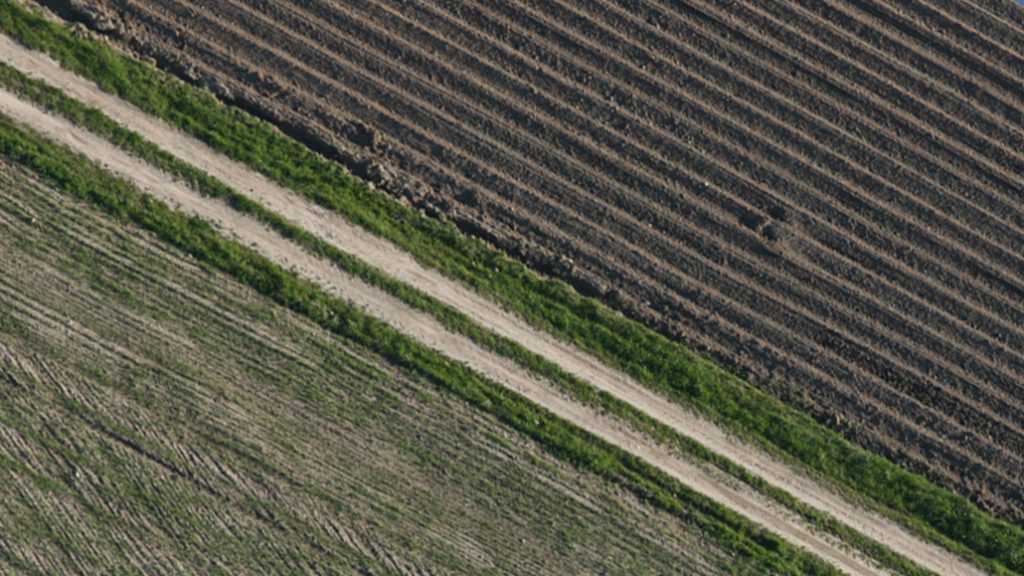Different visions
A SUCCESSION STORY: ANONYMOUS

Names have been changed to provide anonymity for the family.
FOR ONE ONTARIO farm family, succession planning has been a struggle. They are no closer to completing the process than when they started more than a decade ago.
Each member of the family has different plans and expectations for the future of the farm. Like many others, this family struggles with balancing their debt load and their need to grow their business. The older generation still has a desire to be actively involved. The younger generation is ready to have more financial control and a stronger voice in the long-term planning for their operation in order to have a healthier work-life balance.
The family has tried to work with numerous advisors — accountants, lawyers, business planners, succession coaches — with few results. Succession discussions have created a divide between father and daughter and affected their relationships with other family members. They are currently at an impasse and don’t know how to move forward.
A FATHER’S PERSPECTIVE
John is the first to admit that their situation is complicated and that he and his daughter, Jane, don’t share the same vision. But he has always made a point of including Jane and her husband, Joe, in the management activities of the farm which is set up as a formal partnership between them.
“Everything was going fairly well until a few year’s ago when Jane was close to 40 and she figured that I should be sitting in my rocking chair, and her and Joe should be making all the decisions,” says John, who is nearing age 65. “I made it clear that I wanted their full involvement and I wanted this to be a team effort, but I am not going to be sidelined right away because I enjoy what I do.”
John and his wife built up the family farm to include owned and rented crop land, as well as a farm supply business.
“The younger generation needs to recognize that they are standing on the shoulders of sometimes multiple generations,” says John, who bought and worked his own land before being able to buy out his father’s farm shortly before he died. “The children taking over the main operation need to have an appreciation of the work that got them this far.”
John feels his years of experience give him the ability to anticipate trends in the industry and he is in the best position to make long-term decisions about the family farm.
The farm today wouldn’t survive without the income generated from the retail business, and John doesn’t believe Jane fully understands that.
“If interest rates go up and cash crop prices go down, our farm is susceptible to failure. A lot of the recent land purchases still have a lot of debt attached,” notes John.
That’s why he is currently building a new retail facility to expand and evolve the retail business to serve the changing needs of its farm customers and take advantage of new opportunities to sell to the general public.
“We are in a transitional phase right now, going towards more value-added and I would like to be involved as long as I am able — probably for the next five years,” says John. “That change, and the entrepreneurial aspect of it, will rest mostly on my shoulders.”
John is confident in how Jane handles the day-to-day operations of the farm and crops, in fact, he feels they are a strong management team. However, he doesn’t feel she has the same entrepreneurial spirit he does, nor does he feel she is capable of planning far enough ahead to maximize the growth and long-term potential of all their business properties.
“Part of the friction between Jane and I is over the general direction of the farm,” says John. “Jane gets very emotional and sometimes emotions override logic. She sees my involvement in the business as an obstacle, and I don’t think everybody else sees it that way.”
John is trying to leave a legacy for all of his children — Jane is the oldest of four. He is particularly concerned for his youngest two children and wants to make sure they are looked after with a steady income until they are more settled in their careers (they are eight years younger than Jane and not yet established). John and his wife also intend to leave some of their farm properties to their other children.
“This has to do with fairness in the family,” says John, noting that they’ve already sold some of their land at below market value to Jane and their older son — which in his view is part of their inheritance.
Their wills stipulate a five-year lease of the farmland to Jane and Joe to ensure they have some continuity in maintaining their farmed acreage and to ensure the other children have an income stream from the rental fees. Jane will also have first-right-of-refusal to buy the land at the current market value if her siblings decide they want to sell it.
But already, some of John’s plans have not gone as he intended. He wanted his older son to take on the farm supply business, but there was friction between Jane and her brother and despite best efforts, he wasn’t happy and opted out of the business. That has left Joe to step in as manager for now.
Despite the challenges they have encountered, John is hopeful for the future of the family farm.
“I’ve made up my mind that I don’t want to be the last generation farming and so I’ve tried to build a future for not only the following generation but possibly ones after that,” says John. “I get accused sometimes of pulling strings, but all I’ve tried to do is open doors and it’s up to them if they want to go through them.”
THE NEXT GENERATION
“I wish I hadn’t come back home to farm,” says Jane, who originally left to attend university for an agricultural science degree. “I’m tired of trying, I’ve been 15 years trying.”
Jane has struggled to live with her father’s vision of the future. She says they are all exhausted simply trying to keep the farm and farm supply going, especially now that her father wants to expand the business again.
“It’s quite likely my husband and I will walk away from it all because Dad just won’t budge,” says Jane. “We still try to function, but we just don’t know how to. Management hasn’t evolved with the growth of the business or to accommodate today’s business standards. The management of the business never even gets discussed because he is caught up in ownership and power. But it’s not about money — it’s about legacy.”
The new retail building John is working on is hard for Jane to support because she hasn’t seen a formal business plan yet. Jane and Joe have bought into the farm as full partners, and she sees John’s proposed succession arrangement as taking a step backwards in their ownership: John wants Jane and Joe to sell their shares in the home farm back to him so that the family trust would serve as landlord to the various businesses on site. Jane also doesn’t agree with John’s plan to provide for his younger children through land leases because she feels it makes her siblings reliant on them for cash flow while limiting what they can do with their assets.
“It’s hard to keep two households going, let alone four, with a farm,” says Jane. “There is too much debt to leave parts to my siblings and still have cash flow to operate the business. How will this trust be managed — for the betterment of the farm or the investors/family trustees?”
“I suspect it’s an issue for a lot of families,” adds Joe. “The value of farm assets today is so high, it’s pretty tough to figure out what is equal. If you are barely making it work now, how will you split it two, three, or four different ways and then expect it to survive.”
Jane wants a reasonable quality of life for her, Joe, and their two children. She wants the responsibility and the authority to make decisions that are best for the business and create a thriving work culture that contributes to the local economy and reduces staff burnout. She wants to operate the farm with strong business principles, and has sought out numerous management and leadership courses to improve her ability to do so.
Jane wants to develop branding and marketing for the farm and her own farm-grown preserves business that she recently delved into, but says she can’t move forward with any plans because John feels it is a threat to him and his control.
“This is management gone wrong, all wrapped up in succession planning,” says Jane. “I’ve been the scapegoat for everything that has gone wrong, without the power to change it.”
As the son-in-law, Joe often finds himself trying to find the middle-ground between John and Jane. And while he feels like he has a respected voice during business talks, he also feels he must be careful about what he says.
“I sit back and think about it for a moment before I respond — Why is this being said? What is the intention behind it? Where is this person coming from when they say this?” says Joe. “But I’m probably not speaking up enough because I’m trying not to rock the boat.”
Jane wishes when they had started the succession process they had been given more guidance and options to consider. Originally it seemed like everyone in the family was on the same page, but as time went on, it became clear they weren’t.
“What dad hopes to accomplish isn’t impossible, he just isn’t going about it in the right way, and he is taking the business down with it,” says Jane, who is so frustrated she has considered selling and starting elsewhere once her father is gone. “The businesses will probably end when he does, at least in their current state.”
Joe agrees. He feels the accountants, lawyers, and succession planners they have met with have been ill-equipped to deal with the complexity of their situation. And with the numerous changes to the farm and business in recent years, he feels they are a long way from where they initially started.
“Some of Jane’s siblings have expressed they don’t want involvement in the farm, but John wants them to be involved in some way. It’s complicated when there are those who aren’t interested,” says Joe.
Earlier this year, the family met with an advisor who was effective in getting the four siblings to discuss what they want from their parents, what they want to give to their parents, and what they want from each other.
“Mutual respect, healthy boundaries, and autonomy were our mutual goals that resulted from the meeting. It was incredible how we all supported each other as well as the two spouses that are now part of our family,” says Jane. “Unfortunately, my father didn’t want to hear any of it — we were ‘ganging up on him’ and he ‘knows what’s best for us’.”
Jane wants to be able to separate the family from the business in order to reduce the stress they are all under. It has been difficult, and the disagreements are taking a toll on their health and their family relationships.
“It’s not for our ability, or lack of trying, we just can’t see a way out this,” says Jane. “I have been suicidal because of this situation.”
Jane is seeking help to support better mental health, but she still struggles with what she calls the “wonderful, terrible legacy” of the farm.
Joe is also seeing side-effects from the stress — he believes it is contributing to his high blood pressure. He is also at a loss to describe what the end result of this failed succession plan will be.
“I know other farms have gone through successful transitions, so there is a format out there that works, but we aren’t at that point where someone is ready to retire and hand over control,” says Joe. “I think we are at a crossroads and if relationships degenerate further, at the end of the day, the family has to come first. The farm is just a thing. The family has to mean more than the farm.” •











